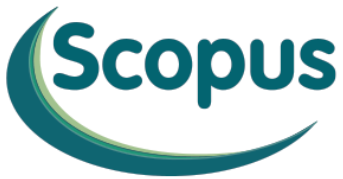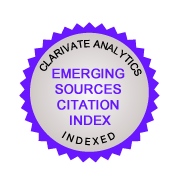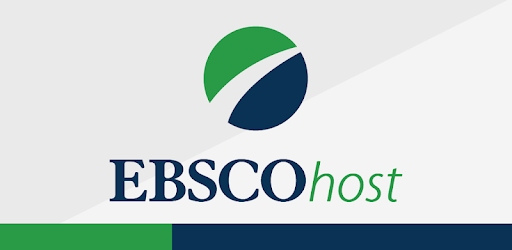RELATIONS BETWEEN INSTRUCTOR FEEDBACK, SELF-REGULATION, ASSIGNMENT COMPLETION AND ACADEMIC ACHIEVEMENT IN THAI HIGHER LEARNING INSTITUTIONS
DOI:
https://doi.org/10.32890/mjli2021.18.1.4Keywords:
Academic achievement, assignment completion, help-seeking, Thai higher education, time management, self-efficacyAbstract
Purpose – Assignments have been linked with various benefits, including a higher quality of learning and academic achievement. The purpose of this study was to explore the relationship between assignment completion and academic achievement in higher education. Specifically, it investigated the impact of instructor feedback and three constructs of self-regulation (self-efficacy, time management, and help-seeking) on assignment completion (time spent on assignments and number of assignments completed) and academic achievement.
Methodology – The study employed a correlational research design and a self-report survey. Data was collected from 1,106 undergraduate students in six universities in Thailand through a convenience sampling approach. Structural equation modelling was used to establish the strength of the relationships among the constructs of the model.
Findings – The number of assignments completed was found to have a strong association with academic achievement. Time management was the strongest predictor of the number of assignments completed as well as time spent on assignments. Time management was also the mediator between self-efficacy and the number of assignments completed. However, help-seeking was negatively associated with both the number of assignments completed and academic achievement.
Significance – These results have educational implications, and should be helpful for instructors, instructional designers and educators who may use the information to offer undergraduate students appropriate learning tools, strategies and environments for supporting assignment completion and academic achievement.
Metrics
References
Bas, G., Senturk, C., & Cigerci, F. (2017). Homework and academic achievement: A meta-analytic review of research. Issues in Educational Research, 27(1), 31–50.
Beagley, J., & Capaldi, M. (2020). Using cumulative homework in calculus classes. PRIMUS, 30(3), 335–348. https://doi.org/10.1080/10511970.2019.1588814
Bembenutty, H. (2009). Academic delay of gratification, self-efficacy, and time management among academically unprepared college students. Psychological Reports, 104(2), 613–623. https://doi.org/10.2466/pr0.104.2.613-623
Bembenutty, H., & White, M. (2013). Academic performance and satisfaction with homework completion among college students. Learning and Individual Differences, 24, 83–88. https://doi.org/10.1016/j.lindif.2012.10.013
Bembenutty, H., & Zimmerman, B. (2003, April). The relation of motivational beliefs and self-regulatory processes to homework completion and academic achievement. Paper presented at the Annual Meeting of the American Educational Research Association, Chicago, IL.
Brown, G., Peterson, E., & Yao, E. (2016). Student conceptions of feedback: Impact on selfâ€regulation, selfâ€efficacy, and academic achievement. British Journal of Educational Psychology, 86(4), 606–629. https://doi.org/10.1111/bjep.12126
Butler, R. (2006). An achievement goal perspective on student help seeking and teacher help giving in the classroom: Theory, research, and educational implications. In S. Karabenick & R. Newman (Eds.), Help seeking in academic setting: Goals, groups, and contexts (pp. 15–44). Mahwah: Lawrence Erlbaum.
Cohen, L., Manion, L., & Morrison, K. (2018). Research methods in education (8th ed.). New York: Routledge.
Collis, B., De Boer, W., & Slotman, K. (2001). Feedback for web-based assignments. Journal of Computer Assisted Learning, 17(3), 306–313. https://doi.org/10.1046/j.0266-4909.2001.00185.x
Cook, D. (2018). The impact of online homework, time on homework, gender, and metacognition in improving student achievement in undergraduate Biology courses [Unpublished doctoral dissertation]. Liberty University, Virginia, USA.
Cooper, H. (1989). Homework. New York: Longman.
Dembo, M. (2013). Motivation and learning strategies for college success: A self-management approach. New York: Routledge.
Doyle, T. (2008). Helping students learn in a learner-centered environment: A guide to facilitating learning in higher education. LLC: Stylus Publishing.
Eccles, J., & Wigfield, A. (2002). Motivational beliefs, values, and goals. Annual Review of Psychology, 53(1), 109–132. https://doi.org/10.1146/annurev.psych.53.100901.135153
Fornell, C., & Larcker, D. (1981). Evaluating structural equation models with unobservable variables and measurement error. Journal of marketing research, 18(1), 39–50. https://doi.org/10.1177/002224378101800104
Grodner, A., & Rupp, N. (2013). The role of homework in student learning outcomes: Evidence from a field experiment. The Journal of Economic Education, 44(2), 93–109. https://doi.org/10.1080/00220485.2013.770334
Hair, F., Black, W., Babin, B., & Anderson, R. (2010). Multivariate Data Analysis. Harlow : Pearson Education Limited.
Hensley, L., Shaulskiy, S., Zircher, A., & Sanders, M. (2015). Overcoming barriers to engaging in college academics. Journal of Student Affairs Research and Practice, 52(2), 176–189. https://doi.org/10.1080/19496591.2015.1020246
Hensley, L., Wolters, C., Won, S., & Brady, A. (2018). Academic probation, time management, and time use in a college success course. Journal of College Reading and Learning, 48(2), 105–123. https://doi.org/10.1080/10790195.2017.1411214
Hetthong, R., & Teo, A. (2013). Does writing self-efficacy correlate with and predict writing performance? International Journal of Applied Linguistics and English Literature, 2(1), 157–167. https://doi.org/10.7575/ijalel.v.2n.1p.157
Hong, E., Mason, E., Peng, Y., & Lee, N. (2016). Effects of homework motivation and worry anxiety on homework achievement in Mathematics and English. Educational Research and Evaluation, 21(7-8), 491–514. https://doi.org/10.1080/13803611.2015.1131721
Intrayut, S., Tansriwong, S., & Koseeyaporn, P. (2013, November). A study of student behavior in homework assignment practicing in electric circuit analysis courses from Faculty of Technical Education and the College of Industrial Technology, King Mongkut’s University Of Technology North Bangkok. Paper presented at the 6th National Conference on Technical Education, King Mongkut's University of Technology North Bangkok, Thailand.
Kaewkeaw, P. (2015, March). Study of students' behavior in copying and not handing in homework or assignment in course information literacy skills, in the academic year 2013. Paper presented at the 7th NPRU National Academic Conference, Nakhon Pathom Rajabhat University, Thailand.
Karabenick, S., & Dembo, M. (2011). Understanding and facilitating selfâ€regulated help seeking. New Directions for Teaching and Learning, 126, 33–43. https://doi.org/10.1002/tl.442
Kitsantas, A., Cheema, J., & Ware, H. (2011). Mathematics achievement: The role of homework and self-efficacy beliefs. Journal of Advanced Academics, 22(2), 310–339. https://doi.org/10.1177/1932202X1102200206
Kitsantas, A., Winsler, A., & Huie, F. (2008). Self-regulation and ability predictors of academic success during college: A predictive validity study. Journal of Advanced Academics, 20(1), 42–68. https://doi.org/10.4219/jaa-2008-867
Kitsantas, A., & Zimmerman, B. (2009). College students’ homework and academic achievement: The mediating role of self-regulatory beliefs. Metacognition Learning, 4(2), 97–110. https://doi.org/10.1007/s11409-008-9028-y
Kline, R. (2016). Principles and practice of structural equation modeling (4th ed.). New York: Guilford.
Koban, D., Fukuzawa, M., Slocum, R., Fletcher, M., & Pleuss, J. (2020). Differential effects of incentivized homework on student achievement in undergraduate Mathematics. PRIMUS, 30(5), 501–519. https://doi.org/10.1080/10511970.2018.1530703
Komarraju, M., & Nadler, D. (2013). Self-efficacy and academic achievement: Why do implicit beliefs, goals, and effort regulation matter? Learning and Individual Differences, 25, 67–72. https://doi.org/10.1016/j.lindif.2013.01.005
Kontur, F., de La Harpe, K., & Terry, N. (2015). Benefits of completing homework for students with different aptitudes in an introductory electricity and magnetism course. Physical Review Special Topics-Physics Education Research, 11(1), 010105. https://doi.org/10.1103/PhysRevSTPER.11.010105
Letterman, D. (2013). Students’ perception of homework assignments and what influences their ideas. Journal of College Teaching & Learning, 10(2), 113–122. https://doi.org/10.19030/tlc.v10i2.7751
Li, W., Bennett, R., Olsen, T., & McCord, R. (2018). Engage engineering students in homework: Attribution of low completion and suggestions for interventions. American Journal of Engineering Education, 9(1), 23–38. https://doi.org/10.19030/ajee.v9i1.10186
Locke, E., & Latham, G. (1991). A theory of goal setting & task performance. Englewood Cliffs, NJ: Prentice-Hall.
Midgley, C., Maehr, M., Hruda, L., Anderman, E., Anderman, L., Freeman, K., & Urdan, T. (2000). Manual for the patterns of adaptive learning scales. Ann Arbor: University of Michigan.
Nilson, L. (2013). Creating self-regulated learners: Strategies to strengthen students’ self-awareness and learning skills. LLC: Stylus Publishing.
Núñez, J., Suárez, N., Rosário, P., Vallejo, G., Cerezo, R., & Valle, A. (2015). Teachers’ feedback on homework, homework-related behaviors, and academic achievement. The Journal of Educational Research, 108(3), 204–216. https://doi.org/10.1080/00220671.2013.878298
Phumchumphon, T. (2006). Development of indicators of good homework and influence of homework on student achivement [Unpublished master’s thesis]. Chulalongkorn University, Thailand.
Pintrich, P. (1991). A manual for the use of the Motivated Strategies for Learning Questionnaire (MSLQ). Ann Arbor: The University of Michigan.
Planchard, M., Daniel, K., Maroo, J., Mishra, C., & McLean, T. (2015). Homework, motivation, and academic achievement in a college genetics course. Bioscene, 41(2), 11–18.
Preacher, K. J., & Hayes, A. F. (2008). Asymptotic and resampling strategies for assessing and comparing indirect effects in multiple mediator models. Behavior Research Methods, 40(3), 879–891. https://doi.org/10.3758/BRM.40.3.879
Puustinen, M., & Rouet, J.-F. (2009). Learning with new technologies: Help seeking and information searching revisited. Computers & Education, 53(4), 1014–1019. https://doi.org/10.1016/j.compedu.2008.07.002
Ragupathi, K., & McMorran, C. (2016). Freedom and control in a gradeless learning environment. Retrieved from https://www.srhe.ac.uk/conference2016/abstracts/0044.pdf
Ratniyom, J., Boonphadung, S., & Unnanantn, T. (2019). Learning management based on online homework in organic chemistry course for pre-service science teachers: A case study of relationship between online homework scores and learning achievement. Journal of Educational Research of Faculty of Education, Srinakharinwirot University, 14(2), 43–57.
Richards-Babb, M., Drelick, J., Henry, Z., & Robertson-Honecker, J. (2011). Online homework, help or hindrance? What students think and how they perform. Journal of College Science Teaching, 40(4), 81–93.
Sakiz, G. (2011). Mastery and performance approach goal orientations in relation to academic self-efficacy beliefs and academic help seeking behaviors of college students in Turkey. Educational Reseaological Measurement, 68(2), 304–324. https://doi.org/10.1177/0013164407301531
Xu, J. (2011). Homework completion at the secondary school level: A multilevel analysis. The Journal of Educational Research, 104(3), 171–182. https://doi.org/10.1080/00220671003636752
Xu, J., Yuan, R., Xu, B., & Xu, M. (2014). Modeling students' time management in math homework. Learning and Individual Differences, 34, 33–42. https://doi.org/10.1016/j.lindif.2014.05.011
Zhu, Y., & Leung, F. (2012). Homework and mathematics achievement in Hong Kong: Evidence from the TIMSS 2003. International Journal of Science and Mathematics Education, 10(4), 907–925. https://doi.org/10.1007/s10763-011-9302-3
Zimmerman, B. (2000). Attaining self-regulation: A social cognitive perspective. In M. Boekaerts, M. Zeidner & P. Pintrich (Eds.), Handbook of self-regulation (pp. 13–39). USA, Elsevier.
Zimmerman, B., & Campillo, M. (2003). Motivating self-regulated problem solvers. In J. Davidson, R. Sternberg & R. Sternberg (Eds.), The psychology of problem solving (pp. 233–362). New York: Cambridge University Press.
Zimmerman, B., & Moylan, A. (2009). Self-regulation: Where metacognition and motivation intersect. In D. Hacker, J. Dunlosky & A. Graesser (Eds.), Handbook of metacognition in education (pp. 311–328). NewYork: Routledge.




























